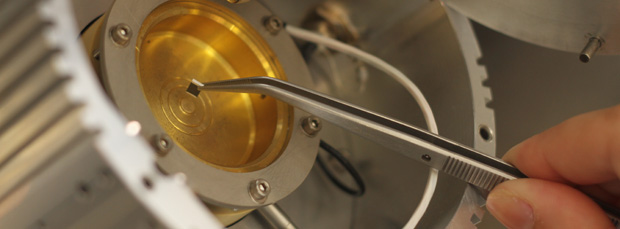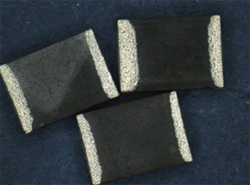Today’s electric cars or EVs have mileage capacity challenges because of limited battery and energy storage. Part of the problem is the batteries themselves whether lead-acid or lithium-ion. Batteries provide direct current (DC) power. Engines run on alternating current (AC) power. That means anything coming from the battery has to be converted before it can be used to drive the engine.
Capacitors play an important role in doing that conversion but current technology is limited in its heat capacity and therefore struggles in the high temperatures environments of EV engines. Research to develop new capacitors is being conduction at the National Physical Laboratory in the United Kingdom. One of the projects is called HITECA, a capacitor capable of functioning in extreme high temperatures. It can operate in temperatures above 200 Celsius (392 Fahrenheit) degrees. That’s twice the boiling point of water. Current capacitors have an operating temperature range of between -55 and 125 Celsius (-67 and 257 Fahrenheit).
The technology involves the application of ultrathin films of alumina deposited in layers on a ceramic surface increasing energy storage capacity. Potential markets go beyond EVs and include applications for integrated circuits, space, renewable energy, extreme environments and high-power energy pulses for use in xrays, energy beams and electromagnetic systems.
But for EVs HITECA is a capacitor with high heat tolerance meaning less insulation and lighter vehicle weights. The high energy density means faster response in terms of energy release. The bottom line is significant improvements in EV range as well as reduced maintenance, so less down time and lower operating costs.











(( Part of the problem is the batteries themselves whether lead-acid or lithium-ion. Batteries provide direct current (DC) power. Engines run on alternating current (AC) power. That means anything coming from the battery has to be converted before it can be used to drive the engine.))
Better caps would be desirable, but even if the caps were 100% of ideal, 99% of the problem retarding universal adoption of electric vehicles would still be the batteries themselves. Cut the present battery cost in half and ten times more buyers will go electric. Cut the battery costs by 75% and fifty times more buyers will go electric. That would probably pretty well saturate the market. Over the past several decades, batteries have only improved about 1-2% per year. Only significant and unlikely improvement in battery cost/performance ratios or much higher fuel prices will popularize electric cars.
There is no doubt battery cost versus performance, and battery weight are remaining issues for EVs. Improve batteries in every way while reducing costs and you will see an explosion in sales of electric cars. The public is still more attracted to price than environmental concerns and EVs remain an early adopter play, very much like the period when personal computing first appeared. The first one I had was kit built, cost a fortune, used 240 volt dedicated clean power and was as complicated to boot as firing a NASA rocket. What EVs do have going for them today is a growing number of name-brand manufacturers jumping aboard to meet US EPA fleet mileage requirements. That stick may yet give us all the carrot.
May I ask why the motors are AC not DC?
Hi Manfred, You may find the following link a useful reference to answer your question. See http://evauthority.com/dc-vs-ac-electric-car-motors/. Tesla chose an AC motor for its Roadster and Model-S sedan. The reason I heard was that Elon Musk visited an AC motor developer, AC Propulsion, and was so impressed that instead of looking at DC he picked the AC alternative. I think performance and torque are probably the two most cited reasons for AC over DC. But the use of AC complicates things. Hope this explanation helps.
There is a small Canadian startup that may have the solution to all your problems and they have an Ultra cap made from a renewable product that works in a hybrid system that has been referred to as the holy grail in green tech as it will allow the EVs to match the range of fossils fuel autos and it costs a 16 th of lithium with a greater density.
Are you talking about ZENN Motors? I have yet to see a commercial product come out based on the EESTOR technology.
No I am Talking about VPE Genesis Bio-Battery it’s not based on EESTOR it is better and doesn’t use lithium. Its a whole new catagory in battery technology. It’s a organic battery/fuel cell as it also charges.
For my readers you can look at Vortex Power & Energy’s website at http://www.vortexpowerenergy.com. The company has working prototypes that it claims have been operating continuously for more than two years. Thanks Robb for bringing this information to light.
A further comment on Vortex. There seems to be very little to read about this technology. I have found an AngelList description and a placeholder web page with the only link to a contact email. I am investigating further because this sounds intriguing if it is indeed real.